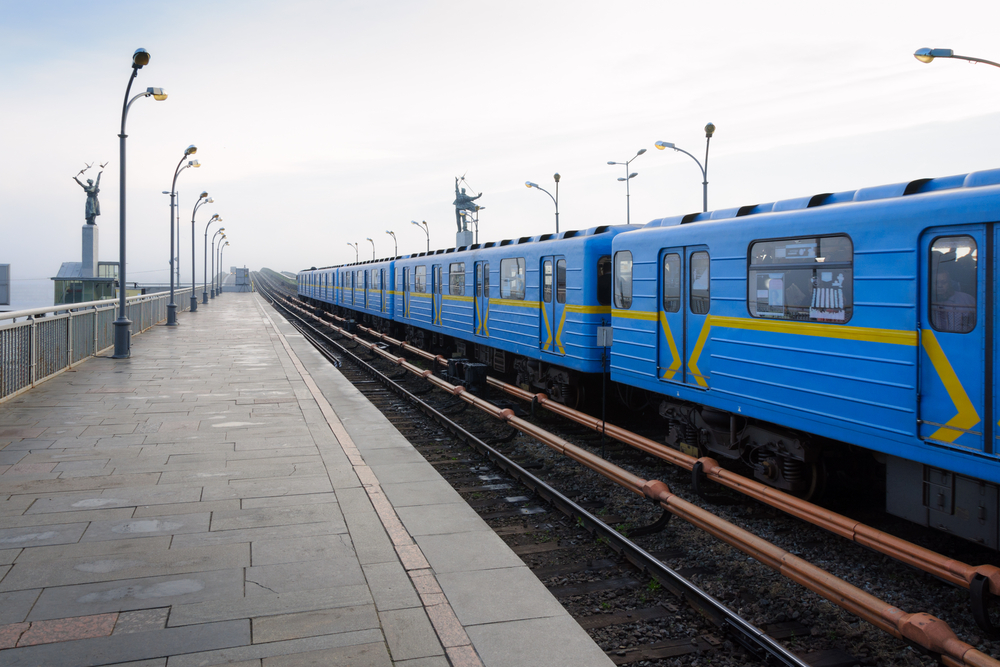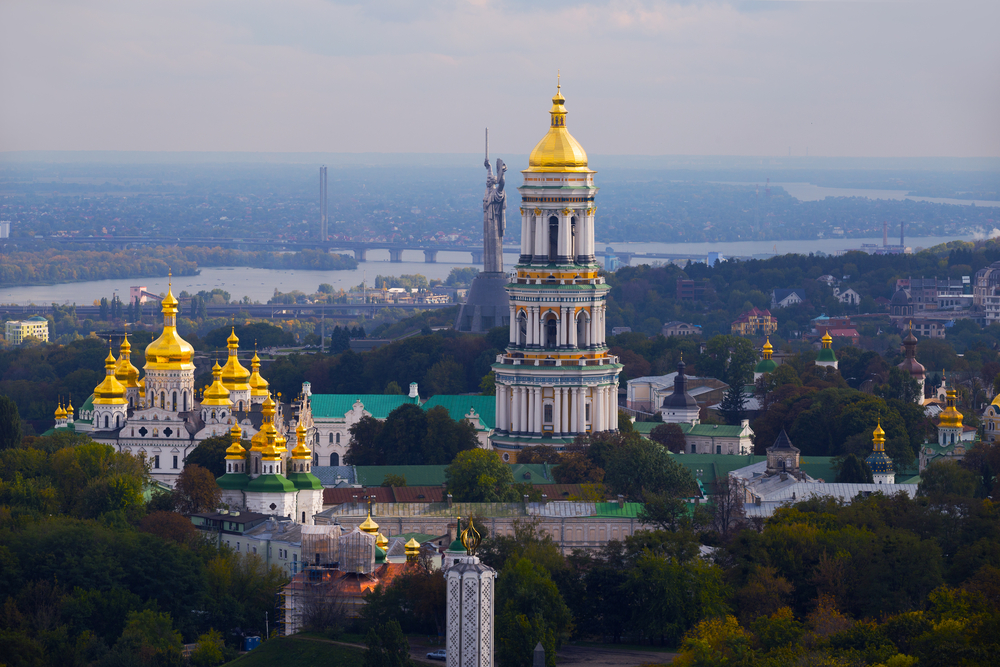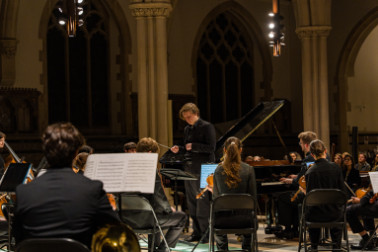1. Visa
First and foremost, make sure you obtain visa before relocating to Ukraine. That is, if you plan to work/start a business, study, or want to stay in Ukraine for more than 90 days in a 180-day term, you do need one. To be precise, a long-term type D visa is issued when moving to Ukraine. This is a multiple entry visa valid for a period of 90 days, allowing a foreign person to apply for a temporary residence permit, which is a necessary step for staying in Ukraine for more than 90 days no matter the purpose.
Read: Ukraine Travel Warnings: Myths and Truth
In most cases, applying for a Ukrainian visa can be done at the local Embassy or Consulate no later than 3 months prior to a visit. The general requirements are the following: a valid passport (expiry date is at least 3 months after the intended date of departure from Ukraine), a printed and signed visa application form, as well as a paid visa fee receipt. Besides, you will need 1 photo (35x45 mm), a proof of medical or travel insurance to cover the period of stay (minimum €30 000 or its equivalent in another currency), and a proof of sufficient funds to cover the period of stay. The latter can range from simple accommodation booking and cash in Hryvnia or convertible currency to credit cards with balance statements provided the card can be cashed in Ukraine.
You can read about the visa specifics and more detailed requirements in our guide on how to get a Ukrainian visa. In the recent years, the Ukrainian government has established strict immigration policy, that’s why overstaying or otherwise violating the rules is not recommended.
2. Cost of Living 
This factor is what most often lures in more expats: compared to Western Europe and the US, living in Ukraine is quite cheap. In 2018 Kyiv was named the cheapest tourist destination in the world, and often it climbs the top rankings in similar ratings considering day-to-day life. To give an idea, rent of a one-bedroom apartment in the downtown will cost about USD 300, and in other districts, it is about a hundred dollars cheaper. You can find more information about city districts and their peculiarities here.
Regular price for a monthly transport pass is about USD 9. Unlimited Internet costs about USD 4 per month. Prices for food generally stay under 5 dollars, which is true for 1 liter of milk, bread, cheese, apples, 1 kilogram of beef, cheese, 1 kilogram of rice, as well as a 1.5-liter water bottle. Leisure is quite accessible as well: about 3 dollars for a movie ticket, the price of a meal for 2 people at a mid-range restaurant starts at 15 dollars, and a monthly fitness club card costs about USD 15-20 depending on the club.
Moreover, many low-cost airlines are adding more and more flights from Kyiv airports to various destinations in Europe and Asia. Besides, neighboring countries like Poland, Romania, Moldova, and Slovakia are easily accessed via train or bus at a decent price, which is convenient for balancing the budget.
3. Renting an Apartment
Sure enough, rent is one of the most important things while moving to Kyiv. When it comes to locals, they tend to use sites like lun.ua to find an apartment for rent. However, if you don’t speak Ukrainian or Russian, there are some real estate sites in English, for instance, All-Star Kyiv Realty. Connecting with expats via local Facebook groups is also a good idea — as a rule, people who have already settled in Kyiv can give some real-life tips. Besides, the newcomers to the capital often look for a neighbor in such groups, so you might hit a lucky strike with a neighbor or simply a future acquaintance. Renting in Kyiv has a standard procedure just like anywhere in the world: meeting with the landlord, agreeing on the rules, signing a contract, and making a payment. Other tips concerning rental in Kyiv can be found here.
4. Language
Most Ukrainians that live in Kyiv speak Ukrainian or Russian languages. Unfortunately, the larger part of people in Ukraine still struggles with English, which is often true for services like taxi or restaurant waiters. Sure enough, it’s still quite possible to find someone who speaks English well. The trick is to focus on younger generation: as a rule, they are more responsive and open to strangers and will do everything possible to help if you are lost. The least the passers-by can do is to tap the address of your desired destination to Google Maps if you struggle with Cyrillic. Consider downloading a phrasebook app for the first time while relocating to Ukraine — this will save you time and trouble while navigating the city, buying tickets, shopping etc. Moreover, there are plenty of Ukrainian and Russian language courses in Kyiv, where responsive teachers show that the languages are not as scary as they seem.
5. Transport
When it comes to transportation, it’s not hard to notice that Kyiv with its vast roads and abundance of cars is mainly focused on drivers. Owners of private transport are often concerned with traffic jams — while not having reached the level of Moscow and New York, jams are still a huge issue, especially in the workdays’ mornings. Parking in the city still leaves much to be desired as well. The city administration takes measures to make it easier for locals and expats: starting 2018, there will be more parking lots in popular spots and some of the key roads will be fixed.
Read: Projects That Will Change Kyiv in 2018
Public transport in Kyiv is represented by metro, trolleybuses, buses, trams, and private buses called marshrutkas, easily recognized by their bright yellow color. Metro by far is the most convenient transportation means, as it covers the center of the city and almost all far-away spots with sightseeing and key travel points like bus station from where you can get to Boryspil (KBP) airport. At the moment a single ride in metro costs UAH 5, but since July 2018 the price will rise to UAH 8. Trolleybuses are the second most popular option, covering the districts otherwise unreachable by metro. A single ride in a trolley costs UAH 4 but will double since July 2018 as well. Trams are mostly used to navigate Podil, the historical district of Kyiv, and to get to Pushcha-Vodytsia, a popular neighborhood with an abundance of nature and various picnic spots.
Read: Bicycle Routes Near Kyiv
Finally, those who live in the farthest city districts or in the suburbs often use marshrutkas. The ticket price is determined by private companies and ranges from UAH 8 to UAH 12. If you are tied with your bicycle, you might want to reconsider using it as the basic transportation means. While the city administration implements various laws to develop the cycling sphere in Kyiv, there are still close to none safe bicycle lanes on the road. However, there are still plenty of places to ride in and outside the city, which is described in our Kyiv cycling guide.
6. Healthcare
Another crucial point to research when relocating to Kiev is healthcare system. According to the Law of Ukraine, foreign residents are obliged to have medical insurance during the whole period of their stay in the country. There are various companies, which can issue the insurance timely, some of them are mentioned here. The most common place to get medical help in Kyiv are state hospitals or ambulances — those are visited in cases that are harder than a regular cold.
Read: English Speaking Dentists Kyiv
Sometimes, an ambulance can come to the patient's place and provide the needed help, such as anti-flu shots or medicine for high blood pressure, without further hospitalization. If the case is serious, it is insisted that the person is hospitalized. State hospitals usually give two options for the in-patients – staying in the ordinary ward with facilities on the floor, usually shared with 3 or more people, or the 'commercial' one, made specifically for no more than two people, with facilities inside.
The cost of such medical service in Kyiv depends on several factors: location, institution status, a course of treatment and comfort. The lowest may vary from UAH 300 per day, climbing up to several thousand in the top clinics with 24/7 patient care and most comfortable conditions.
Read: Born in Ukraine: Expat Women about Childbirth in Kyiv
Note that the doctors in state hospitals generally don't understand conversational English, so it is better to have a translator or a friend who can speak for the patient. Another option is private, or commercial hospitals. The level of comfort and service in both is usually much higher than the one in state hospitals: on-the-clock patient care, built-in facilities, English-speaking staff, and doctors ensure to provide the best treatment possible. The list of the most popular private English-speaking hospitals is provided here.
7. Attractions
Kyiv has numerous sightseeing spots for all kinds of interests: from historical landmarks like the Golden Gates, popular photo locations like the giant statue of Motherland or religious locations that have seen the history of the city since its dawn: Kyiv Pechersk Lavra, St Volodymyr’s Cathedral, St. Sophia’s Cathedral, and St. Andrew’s Church. The latter is located on the Kyiv Montmartre — Andriyvsky Descent, full of artists selling their works and vendors with unique handmade souvenirs. The descent leads to the historical district of the city, Podil, and to the embankment of the Dnipro River which divides Kyiv into two banks.
Sure enough, this is just a tiny part of what is there to see in Kyiv — there are numerous free attractions and events that regularly take place in various parts of the city. Some of them are Ulichnaya Eda food festival, Kurazh Bazar charity festival, and various music festivals like Atlas Weekend that gather the stars of the international music scene.
8. Safety
The question of safety often rises when moving or traveling to Kyiv. The myths, of course, don’t reflect the reality. According to 2018 rate of SOS international organization that deals with the safety of tourists all over the world, Ukraine is a country with middle risks for travelers, which lies on the similar level with Mexico and India.
If you keep to the basic foolproof rules, it’s safe to say you won’t get in trouble in Kyiv: keep your valuables in different places, don’t have too much cash with you, avoid walking alone in the unlit areas at night, don’t engage in contact with suspicious-looking people. It is recommended to have an ID with you. The number of your country’s Embassy is better to be saved in contacts as well — in case of emergency it is always better to contact them.
9. Cuisine 
Surely, Ukrainian cuisine that is so often beloved by tourists and made sacral by locals is hard to omit. The most popular Ukrainian dish by far is borsch — a red soup made of beetroot, cabbage, tomatoes, potatoes, and dill. Varenyky, which are essentially Ukrainian dumplings, with various fillings from sour meat to sweet cherries are the runner-up in the rate of traditional Ukrainian food.
Most locals know the recipes of the most famous dishes and often cook them at home, so don’t be shy to ask them to cook something for you. Ukrainians pride themselves in cooking their traditional food, so they will be glad to make an introduction. Besides, there is plenty of restaurants of Ukrainian cuisine, the most popular being Puzata Khata chain, located in various spots in downtown.
10. Expat Communities
Last but certainly not least, it’s incredibly important to find the local expat network while moving to Kyiv. The communities not only give a sense of belonging that is often missed shortly after the relocation, but also provide with great tips and host various get-aways, events, and parties where you can establish future work contacts and find friends. Some of the most popular expat communities in Kyiv are InterNations, The Big Meet, IWCK (International Women’s Club of Kyiv) that are easily googled or found on Facebook.
Besides, there are local Facebook expat groups where you can ask advice or even find a company to go to the English showings of the popular movies in Kyiv theatres.
Moving can often be quite stressful, but we hope your experience will be different in all ways. Welcome to Ukraine!
Photo sources: unsplash.com, shutterstock.com. All images belong to their rightful authors.
10 Things to Know When Relocating to Kiev
Moving places can be an anxiety-inducing ordeal as it is, but what about moving to a different city or a country? It’s a whole other level, especially when the local language is nothing like your own. Worry not – we prepared a guide of 10 essential things to know for expats who are planning on living in Kiev, featuring how to get a Ukrainian visa, where to rent an apartment, and, of course, where to taste delicious Ukrainian cuisine.







